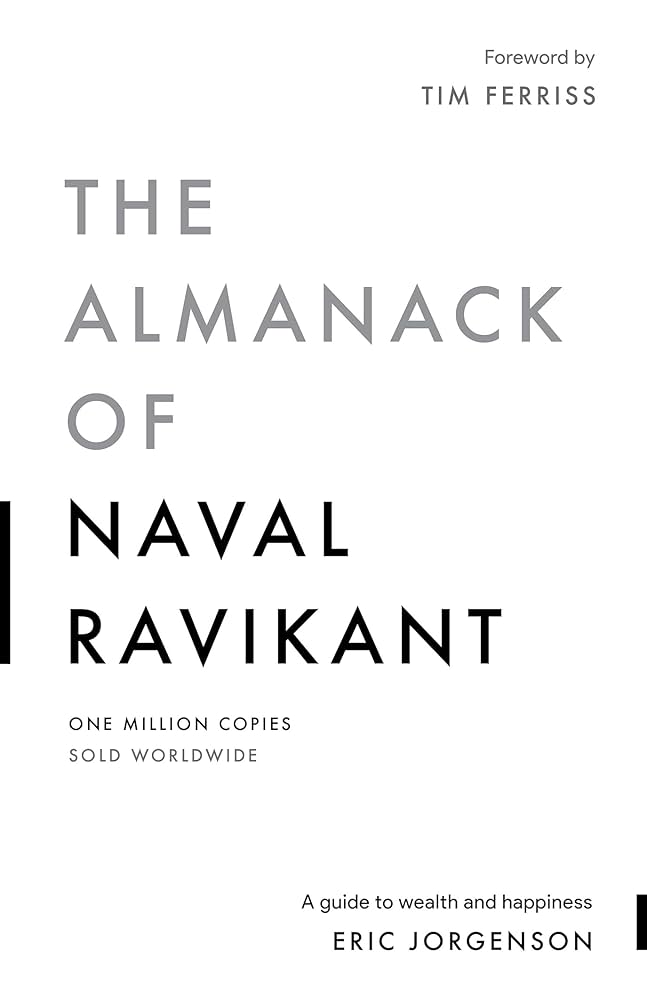Book Club - The Almanack of Naval Ravikant

The Almanack of Naval Ravikant - Eric Jorgenson
This book is presented as a conversation or interview style layout, asking questions and getting advice from successful entrepreneur and modern philosopher Naval Ravikant. It contains a collection of wisdom and insights from Naval’s perspectives on wealth creation, happiness, purpose and life philosophies. I really enjoy reading and listening to Naval and the way he thinks, he questions everything and breaks all these topics down to their fundamental components and simplifies them to an almost scientific or mathematical approach to help develop mental models and clearer understandings of the vague esoteric concepts we think of such as “happiness” and “success”.
My main takeaways from the book are:
- Seek wealth, not money or status – Wealth is assets that earn while you sleep. Money is how we transfer wealth. Status is your position in the social hierarchy.
- Wealth = Specific knowledge + Leverage – Specific knowledge is knowledge you cannot be trained for, what feels like play to you but looks like work to others. Leverage is anything that multiplies your effort without requiring a proportional increase in your time, it’s what allows you to scale your impact beyond your personal output (eg. labor, capital, code, media).
- Learn to build and learn to sell – Building refers to design, development, and production while selling includes marketing, recruiting, and raising money
- Happiness is a choice and a skill – It requires accepting the present moment and not treating it as a means to an end.
Desire is a contract you make with yourself to be unhappy until you get what you want. Anger is a hot coal you hold in your hand while waiting to throw it at somebody.
- The best mental models come from classic, foundational, timeless books – If you can’t rederive concepts from the basics as you need them, you’re lost. You’re just memorizing.
- Meditation and mindfulness are essential tools – Enlightenment is the space between your thoughts.
Enjoyed Reading This?
Here are some posts you might like to read next: